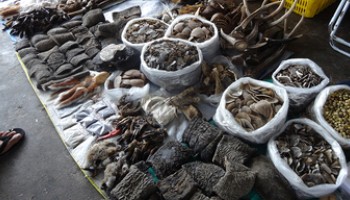The networks have been found to use Chinese online payment services in order to sell illegally obtained wildlife products in China and abroad.
The non-governmental organization TRAFFIC suggested that Chinese banks and online platforms implement an anti-money laundering strategy called ‘follow the money.’ This would allow them to identify groups involved in wildlife and forest crimes.
As an example, Tencent, a Chinese multinational entertainment conglomerate and holdings company, noticed that criminals might be using its online payment service WeChat pay and joined TRAFFIC and Guangdong Forest Police Bureau to improve its AML team’s capacity.
Tencent Chengdu Office recently organized a training session for its staff within TRAFFIC's Training of Trainer (TOT) Module. Participants went through relevant laws, regulations, and methods of illegal transactions used in wildlife and forest crime. In addition, the session aimed at improving identification skills for species commonly traded online.
TRAFFIC AML Project Manager, Linda Chou, said that her organization was “glad to see that Tencent has started to pay close attention to the use of AML approach in fighting against wildlife crime, but the overall awareness and skills applied in China’s financial sectors still need to be further raised and improved.”
“In China, investigations and prosecutions still rely primarily on charges for poaching or trafficking,” she said. “At the same time, financial crimes are mostly overlooked and not fully utilised as a tool to identify and bring those who profit most from wildlife crime to justice.”
Director of TRAFFIC China, Ling XU, said this was the first time that Chinese law enforcement authority exchanged views with the private sector on combating international wildlife trade through AML approach and that this was a “very positive step in the right direction.”
“TRAFFIC continues to provide the platform for cooperation and communication between the Chinese private sector, financial industry and law enforcement agencies to combat wildlife crime networks, and in turn, support global biodiversity conservation,” XU said.






